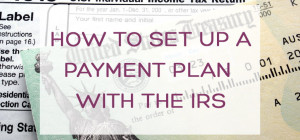
VAT registration is done for a "person" and not for the business. This "person" can either be considered an entity (organization) or any legal person or an individual. A legal person’s a distinct body or an entity that exists separately from the legal/natural persons comprising that particular body or entity. Each and every business activity of the VAT-registered "person" is covered by a single online VAT registered account. Let’s go through a few VAT registration guidelines for joint ventures and groups in more details.
VAT Registrations for Joint Ventures
If two people are working together in a joint venture, that joint venture might have to opt for VAT registration. HMRC may sometimes consider a joint venture as a form of partnership. This ‘partnership’ would be considered a new as well as an independent person for registering for VAT. If the turnover of the joint venture exceeds the mandatory registration threshold, that joint venture should opt for VAT registration.
There are 3 types of joint venture:
- Joint Venture Company: It’s an isolated legal organization and is liable for tax liabilities in its unique right. A joint venture company is a universally acknowledged unit that provides a comprehensible structure suitable for accounts related purposes and is flexible enough for raising revenue.
- Partnership: Partnerships have transparency for tax-related purposes which indicates that the specific partnership doesn’t have to pay taxes on its profits. In this case, each partner’s accountable for taxation on his/her share of profits. There’s no common liability.
- Contractual Joint Venture: In this case, the parties don’t establish any discrete entity for carrying out their venture. The parties come into specific contract, thereby making their very own profits as well as losses. Tax is paid by them only on the basis of their own profits.
VAT Registrations for Groups
There are certain conditions that need to be satisfied by two or more entities to opt for a VAT group formation and avail VAT group registration. These conditions are:
- The entities are ‘bodies corporate’. ‘Body corporate’ is one group of various persons treated as a single legal person. This includes, among other things, private companies, companies that are limited by guarantee or shares, unlimited companies as well as LLP (Limited Liability Partnerships). A single individual is not eligible for VAT group registrations.
- Each body of the previously stated ‘bodies corporate’ should have one head office (principal business place) or one fixed establishment (for example, a branch) in UK. Another point to be noted here is that these specific entities should also have the essential human as well as technical resources for carrying on the trading-related activities. If a foreign company has one registered office in UK, the company should also have the essential resources to avail VAT group registration. Otherwise, it wouldn’t qualify for such registration.
- The ‘bodies corporate’ should pass the control test that are:
- Any one of the bodies should control other(s).
- A person who can be an individual or a ‘body corporate’ should have control over all the entities.
- Two or more partnered individuals running a business should have control over all of their entities.
If a group is managed or partly-owned by a 3rd party and the turnover of the same group exceeds £10 million/year, VAT group registration is only possible if:
- the 3rd party receives 50% or less of the benefits generated.
- the group utilizes consolidated accounting.
- no 3rd party is involved in consolidation of the group into their accounts.
How to opt for VAT Group Registration
You can opt for group registration while registering for online VAT. For group registration, you have to download VAT50 and VAT51 forms. You need to take a print out of those two forms, fill them up and post the same to HMRC. Keep in mind that HMRC may refuse your VAT group registration if:
- you don’t meet the required eligibility criteria.
- HMRC feels that your group registration may result in a significant decrease of your VAT amount disbursements.
HMRC will soon inform you whether your group registration is accepted or not.
VAT registrations for joint ventures and groups do have significant advantages from the business point of view. But there’s one catch even if a corporate body satisfies all the required eligibility criteria before signing up for such registrations. The final decision regarding the approval still stays with HMRC. They may always reject the application in a time limit of 90 days after your registration if they feel that this is required to protect their revenue. Their decision will be considered as the final one in this respect unless the consumer appeals to First-tier Tribunal to revoke that decision.
Contributed by http://www.vat-registrations.co.uk/







